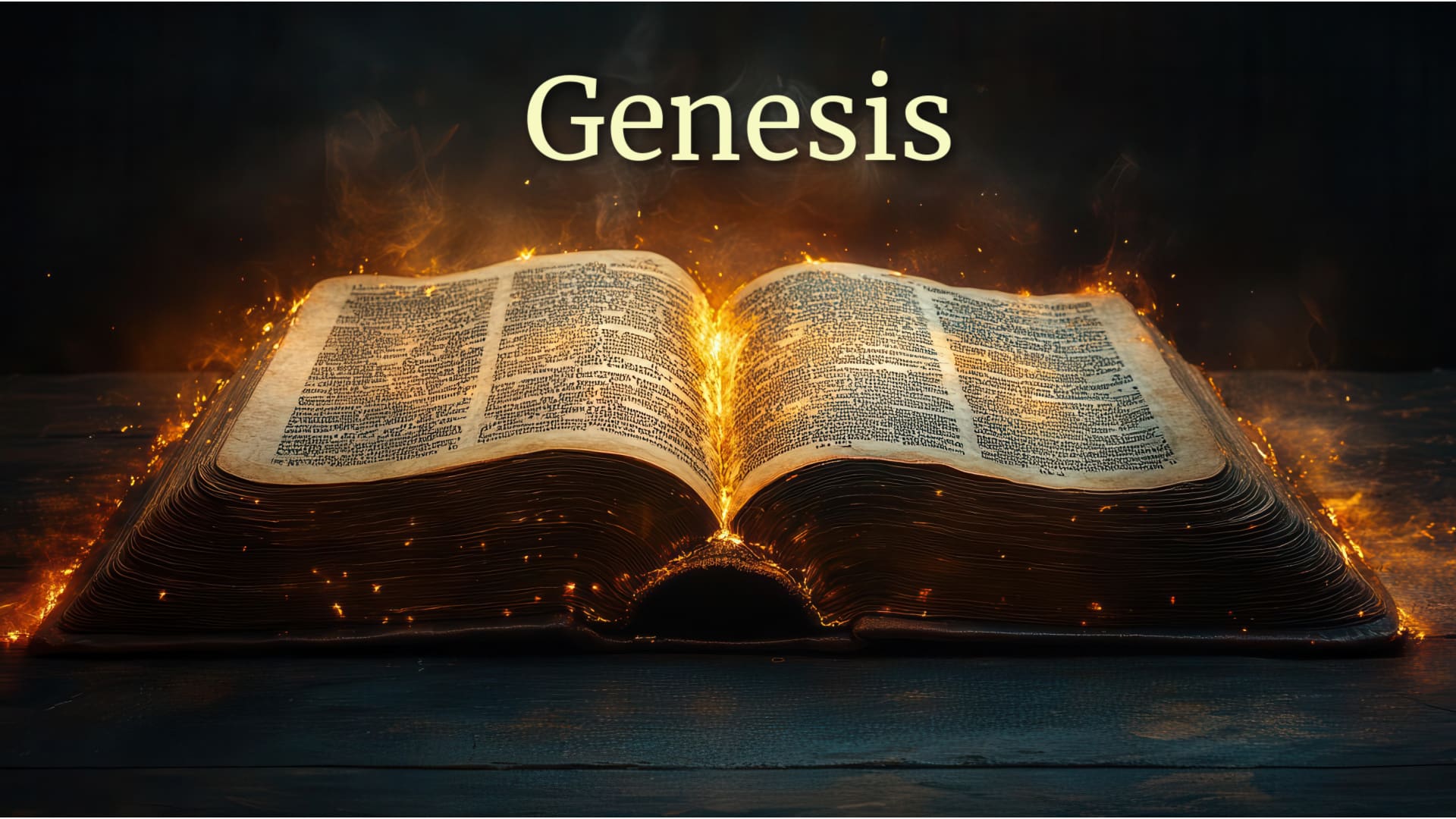
Genesis 1:1 A Cry of Praise and Worship
In the Beginning, God Created the Heavens and the Earth!
What did the ancient Hebrew mind experience when it read the first verse of the Bible? As strange as it might appear to many of us today, it is an introduction to a sacred worship text comprised of Genesis 1:2- 2:4. It is a shout of praise to God for giving order to the elements of chaos and making space for a great cosmic temple of beautiful form and function for Him to dwell with humanity. Consider this statement by Claus Westermann who wrote a definitive and very thorough commentary of Genesis:
“The sentence in 1:1 is not the beginning of an account of creation, but a heading that takes in everything in the narrative in one single sentence ─ and it is much more than a mere heading. It speaks of the creation of heaven and earth in the same way as do the hymns of the praise of God … It has often been said that Gen 1 has echoes of a hymn or that as a whole it is very like the praise of God. The reason for this is that the first sentence itself is really a cry of praise.” (Genesis 1-11, p. 94).
I know this may not be very satisfying for us westerners who absolutely thirst to know how creation happened in an “objective” scientific way. So many volumes of wasted paper have been dedicated to conforming science with this text. The problem about scientific investigation into the origin of space, time and matter is that the deeper one probes, the more complicated things get, the more complex and abstract the mathematical formulas, and further removed from our humanity. It can never mean anything to me as a person – especially me; I barely passed High School Algebra.
I invite you to follow me as we work through this text. It will change your life for the better to see Genesis 1 as it was originally designed; a hymn of praise that joyfully describes how God created a universe of wondrous form, order, and function out of that which was without form, order, and without function, that is, chaos. In fact, Genesis One is fundamentally liturgical; it is about worship, and worship is glorious! It asks, how did the cosmos get to be so beautiful? Why is there order? Is there meaning and purpose to it? What is it? How do I fit into it? How does the Creator relate to it? How should I relate to my Creator? These questions invite us to experience creation and embrace its mystery rather than reduce it all down to our ability to comprehend it with our small minds. This is hard for us modern westerners to do, but the good news is that we can, by God’s holy work in our hearts, make the shift.
Faith, Scripture, and the Church teaches us that it is Jesus Christ Himself who spoke the creation into existence, linking Genesis 1 with John 1. We therefore can be faithful to the original meaning of these ancient texts, but viewing them through a Christological hermeneutic, or “lens.”
Therefore, Jesus Christ brings about the unity of Scripture, because he is the endpoint and fullness of Scripture. Everything in it is related to him. In the end he is its sole object. Consequently, he is, so to speak, its whole exegesis. . . In as much as he is the exegesis of Scripture, Jesus Christ is also the exegete. Henri De Lubac
Christus, inluminator antiquitatum. Tertullian
To separate Christ or the Church from the Old Testament is at the heart of every heresy. So, we will take seriously St. Augustine, when he declares “The New is hidden in the Old concealed; the Old is in the New revealed.” Without Christ, there is no unity in Scripture; the Old Testament by itself a mere torso with no head, that is, no fulfillment
Takeaway: Genesis One is not a scientific document in the modern sense, but a liturgical text designed to lift our minds and hearts to God.
Questions:
- If we are right on the takeaway above, can there be any legitimate connection between Scripture and science? If so, what is it? If not, what are the implications?
- If Jesus illuminates Scripture, what sort of person must we be to become good exegetes? (An exegete is one who interprets Scripture).
Sources Used:
Augustine, Quæst in Heptateuch, ii, 73.
De Lubac, Henry. Medieval Exegesis, vol. 1, trans. by Mark Sebanc (Grand Rapids: Eerdmans, 1998), pp.239ff.
“Christ is the illuminator of ancient things,” quote from De Lubac, footnote 69, p. 434.
Westermann, Claus. Genesis 1:11 in the Continental Commentaries. Westermann was a Protestant scholar, but much of what he does is objective exegetical work and useful, although he is not working, of course, under the magisterium.
0 Comments